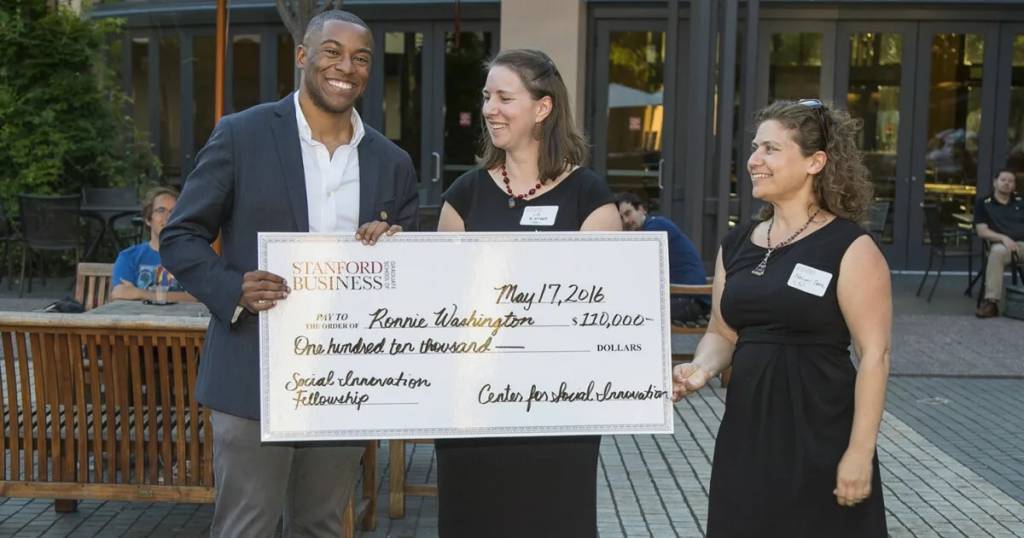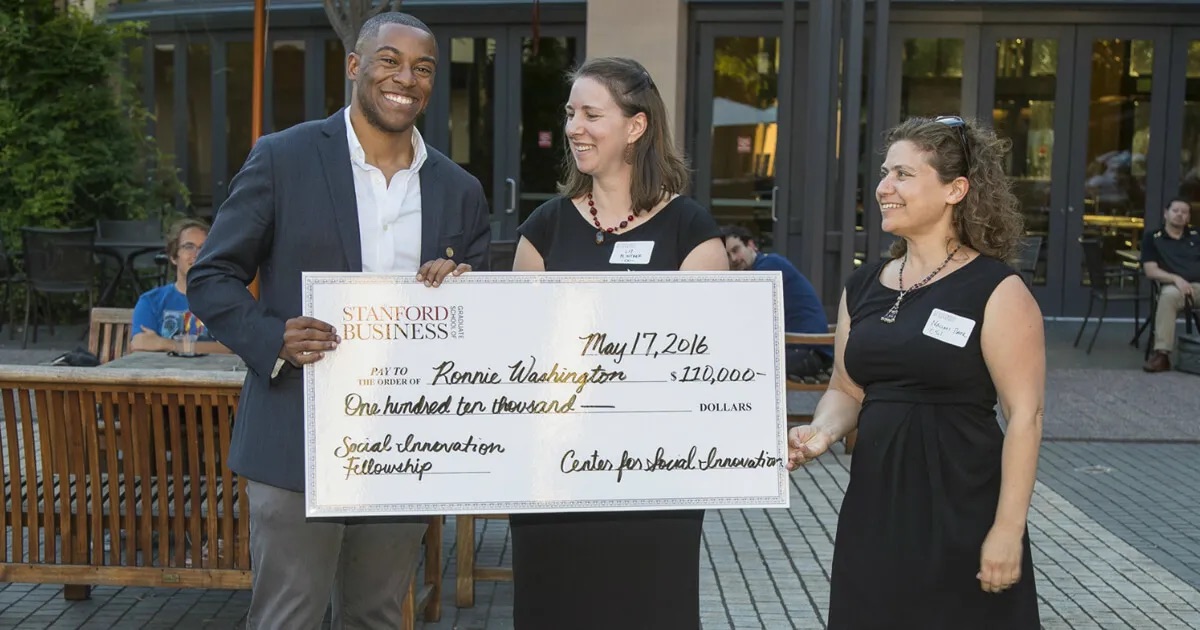Stanford Seed intern Ronnie Washington learns what it really means to be an entrepreneur while helping a Ghana-based company grow.
Sed ut perspiciatis, unde omnis iste natus error sit voluptatem accusantium doloremque laudantium, totam rem aperiam eaque ipsa, quae ab illo inventore veritatis et quasi architecto beatae vitae dicta sunt, explicabo.

Ronnie Washington decided he wanted to become a Stanford Seed intern before he became a Stanford student. But he never anticipated the way the program would affect his own dreams of entrepreneurship.
Today, Ronnie is a 2016 Stanford Social Innovation Fellow, and the founder and CEO of Onward, a fledgling nonprofit employee-sponsored benefit program that promotes saving, responsible borrowing, and financial education. He credits much of his success to Michael Amankwa, CEO of CoreNett, a transactions processing management company based in Ghana, where Ronnie served as a 2015 Seed intern.
“Being there helped demystify what being an entrepreneur is, and that was really meaningful to me,” he said. “Entrepreneurship felt scary to me; how can you risk everything to fulfill a dream? A lot of doubt came with being an entrepreneur. Having seen Michael, I realize this is possible. I can also do this and bring my ideas to life.”
Before coming to Stanford, Ronnie worked with Deloitte Consulting in Atlanta, GA, and spent two years in Ghana helping build a microfinance program. It was there he first learned about Seed.
“I was interested in Stanford and considering applying to the business school when I heard an introduction to Seed in the capital of Ghana,” he recalled. “As an outsider — at that point I was not a student at Stanford, I had no tie to the university — I was just amazed at the work they were doing.”
Ronnie eventually was admitted to Stanford Graduate School of Business and applied to become a Seed Intern, joining the ranks of students selected to undertake projects at companies participating in the Seed Transformation Program. The program, which is housed under Stanford GSB, offers high-potential leaders based in developing economies a chance to assess their company’s vision, redefine strategies, and make changes toward exponential growth that will create new jobs in the region. Stanford Seed East Africa, based in Kenya, and Stanford Seed West Africa, based in Ghana, eventually will be expanded to include Seed programs in developing economies throughout the world.
“I’m a big believer in realizing potential, and Seed is about that, going into Ghana and other places others may not want to go, finding entrepreneurs there who can grow businesses,” he said. “It connected with my own mission statement and view of life. I thought it was important work they were doing.”
At CoreNett, Ronnie worked with a team helping develop a marketing strategy for Knoxxi, the company’s mobile money platform.
“I had a shorter internship, but it was pretty impactful,” he said. “The project focused on customer acquisition and merchant acquisition strategy; we had to acquire enough customers and businesses to buy into the plan. I did a lot of research on other mobile money platforms to get a sense of what they’re doing. We wanted to know how do we differentiate, who do we target, and how can we make this a different platform than those now on the market.”
Being there helped demystify what being an entrepreneur is, and that was really meaningful to me.
Over the five-week internship, Ronnie learned to cope with infrastructure problems and power outages and found inspiration both in the work and in company CEO Amankwa.
“He was very big on doing something that was transformational,” Ronnie said. “During that time, we would ride into work together and I’d pick his brain about what he thought, his routines as a CEO, how he managed leadership — everything I could think of I asked him. What does it take to be an entrepreneur? To do business in Ghana is difficult; there are not as many resources available, not as much venture capital, but he’s doing it.”
For his part, Amankwa relished the opportunity to work with the American student.
“I decided to mentor him whether he liked it or not,” he said with a smile. “While we were driving, I’d ask him, ‘What did you learn? How are you going to process this? What do you think about this?’ Anytime you want to do something, it’s not just about you; it’s about people. Make sure you touch people. Make sure you make a difference. Once you do that, you’re going to succeed.”
Amankwa said he happily received the news of his protégé’s venture into entrepreneurship.
“For me, it’s an amazing feeling to see what he’s doing and about to do,” he said.
As the 2016 Stanford Social Innovation Fellow, Ronnie received $110,000 to build his social enterprise and is now immersed in developing ideas and building a pilot program to test the model for his financial platform Onward. The opportunities the Seed internship provides — problem-solving experience and up-close access to a company’s top executives — is beneficial to those in any field, he said.
“The level of access you get to key decision-makers and being in those discussions and contributing to those discussions is an amazing opportunity you won’t necessarily get elsewhere,” he said.
“If you really want to step out of your comfort zone and challenge yourself in ways you haven’t yet imagined, you should do this,” he added. “You get a different perspective on how others live and how they persevere, and you’ll face challenges.
“There are lessons to be learned.”



